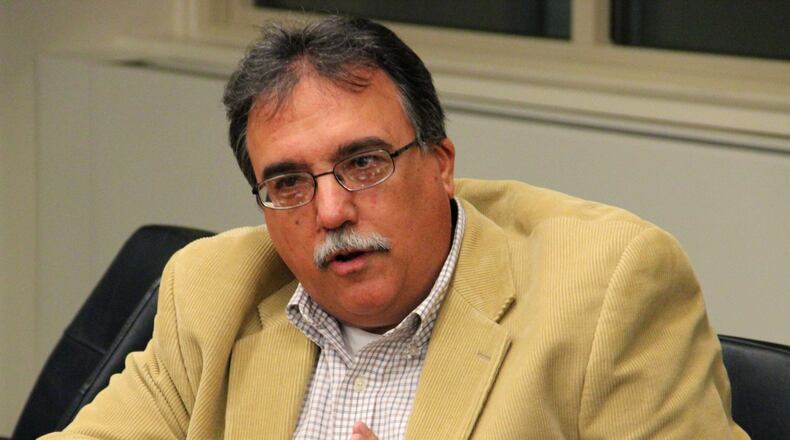In the letter, Owens writes to Foley: “First, a number of questions have been raised about the transparency of your actions to date, the process you are planning, who is involved and how your plans are being funded.”
Foley said this effort shouldn’t come as a surprise to the community as he became active in the discussion as early as 2008 after first elected commissioner in 2006. Paul Leonard, former Dayton mayor and lieutenant governor, is co-chair of a 16-member committee working on the charter. Foley said committee members working on the plan would be revealed Thursday at the 1 p.m. news conference at the Engineers Club of Dayton.
“Our first job that we are going to be announcing Thursday is really building this charter so people can then form an opinion about whether they support it or not,” Foley said.
This is just the first step in a months-long process, the county commissioner said. Any charter would have to got to voters and be approved.
“We’re asking people to keep an open mind until we finish the charter,” Foley said. “The community has the ability to say yes they support it or no, they don’t think it’s a good idea. But we’ve never really respected the community by asking them yet. So what we’re trying to do is build the process,” Foley said.
The result of that process, Owens said, could lead to the disenfranchisement of Dayton’s 140,000 residents when pushed into a larger voting block.
“They won’t have a say in local government like the people in Kettering would, Vandalia would and Huber Heights would.”
Owens said in the letter it would diminish Dayton’s ability to help determine police and fire staffing, when streets are paved and when trash is collected.
Regional economic competitiveness and cost savings would outweigh some early growing pains, Foley said.
“The question about a more efficient structure of local government is one that’s rooting in how can we compete better for jobs and how do we become more unified,” he said.
Dayton Mayor Nan Whaley and City Commissioner Matt Joseph said neither of them knew Owens sent the letter nor knew of Foley’s Thursday announcement.
“I guess I’ll learn along with everybody else,” Whaley said. “The devil is always in the details.”
The starting framework for Dayton Together will be based on Louisville, Ky. model, Foley said. In 2003 the city of Louisville consolidated with surrounding Jefferson County to form Louisville Metro, operated by mayor-council government.
“Communities like Louisville and Indianapolis have done this in the past and many of us believe those communities have benefited from a more unified government structure,” Foley said.
Owens said a past effort to study the same issues three years ago didn’t yield results and cost $200,000. The plan, which Owens said Foley outlined for him during a June 26 meeting, would not include other Montgomery County municipalities, Owens said.
“A city-county merger, what does that accomplish? Just between the city of Dayton and the county of Montgomery, I’m not sure how that is going to make government more efficient, how it’s going to stop a slide in population loss, how it attacks poverty,” Owens said.
The party chair also questions the sources of what is asserted to be possibly up to $100,000 raised by Foley to pay for expenses related to a merger effort and says the commissioner has kept “fellow office-holders completely in the dark.”
“Your failure to seek their input, to ask for their thoughts or suggestions or to show any interest in their ideas or perspectives is a serious problem,” wrote Owens. “How can you hope to convince the public that this will be an open process when those who will be directly affected by its outcome have been deliberately left out?”
Foley will be moving ahead Thursday apparently without Owens’ support.
“The reasons we are doing this is about a competitive Dayton region looking ahead,” Foley said. “Both Mark and I wake up every day trying to make the region better. I don’t disrespect him for having an opinion different than my own.”
About the Author

